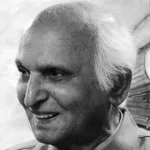A positive for the book is that unlike most such accounts in Urdu it talks about southern India; that is until, come Partition, Abid migrates to Pakistan. He was born and raised in a culturally diverse Bombay. There were Memons, Bohras, Khojas, Parsis and Hindus. The fact that the city did not have a single culture did not mean that it was uncivil – people queued up at bus stops.
And while the city was not uncivilised, there was a growing culture of stiff necks. Every Muslim neighbourhood had a dada (big brother) who commanded all local criminals. These very dadas organised fighting platoons for Hindu-Muslim riots. Soda bottles were the weapon of choice. Once in a while somebody would be stabbed.
Then there was prostitution. Four-storey houses over a large area provided dens for sex workers from all over India.
As for riots, Abid says besides the Hindu-Muslim hostility there were tensions between Gujarati Hindu moneylenders and Marathas whom most of the former treated with contempt. There were ugly riots between the two communities following the Partition over the metropolitan’s future – Gujarati Hindu women were insulted on the streets and their businesses burned.
As a grown up Abid moved from Bombay to Hyderabad; he does not say when or why. But he describes the living. Bread, butter, jam and eggs, he says were missing from the breakfast table; everybody ate khichri rice and roti salan. There were many occasions for customary food charity, the one attributed to Imam Jaafar Sadiq being the most popular.
There was purdah but you saw burqa-wearing Muslim women comfortably walking in the streets by themselves. Ox-carts carried purdah-observing girls to and from schools and colleges in their Cadillacs.
White sheets covered durries at homes. People sat on takht platforms made comfortable by round pillows. Every woman maintained a paandan.
His Exalted Highness the Nizam, daily visited his mother at the Old Haveli. Traffic was halted in the streets for the routine. His subjects lined the way on both sides but none, except two people, were allowed to greet him. Ghousi Shah Nizami was one. The Nizam acknowledged him by raising an index finger.
About politics he says:
“At official meetings both Meer Laiq Ali and Syed Qasim Rizvi admitted that Hyderabad was no match for India and that confrontation must be avoided. Rizvi was however very conscious of people who wanted to embarrass him by portraying him as week and tried to retain the leadership of Ittehadul Muslimeen by speaking in the midst of charged youth of raising the Muslim standard at Delhi’s Red Fort.”
Abid talks of much sane advice that he gave his editors and publishers, Nasim Hejazi, Enayatullah and Faiz Ahmed Faiz among them, that was unfortunately disregarded. This makes for some very interesting reading.
Inaccuracies, particularly in his account of the literati, notwithstanding; his journey is a great story to tell, even better told.
*Translated from Urdu



COMMENTS
Comments are moderated and generally will be posted if they are on-topic and not abusive.
For more information, please see our Comments FAQ